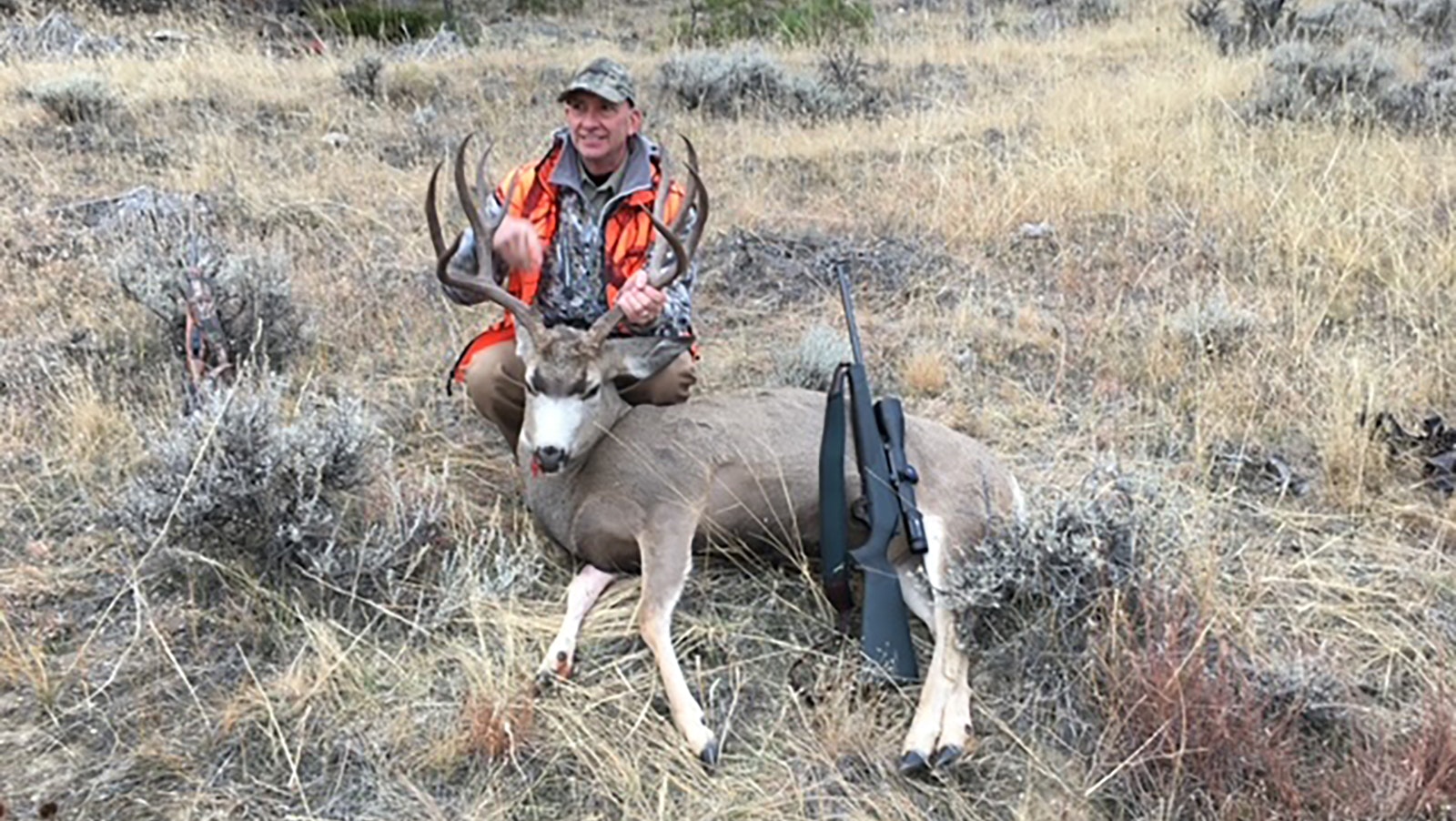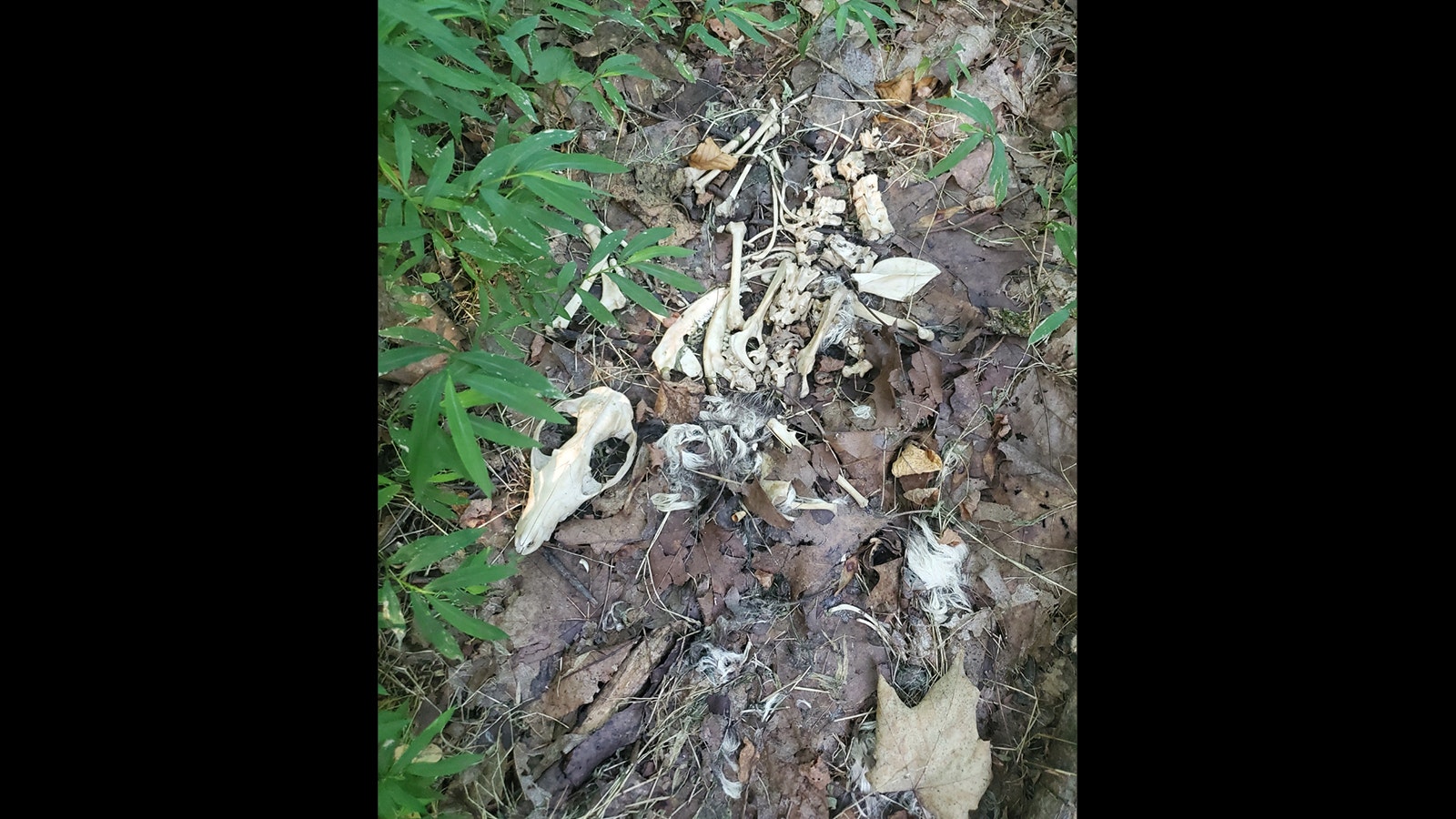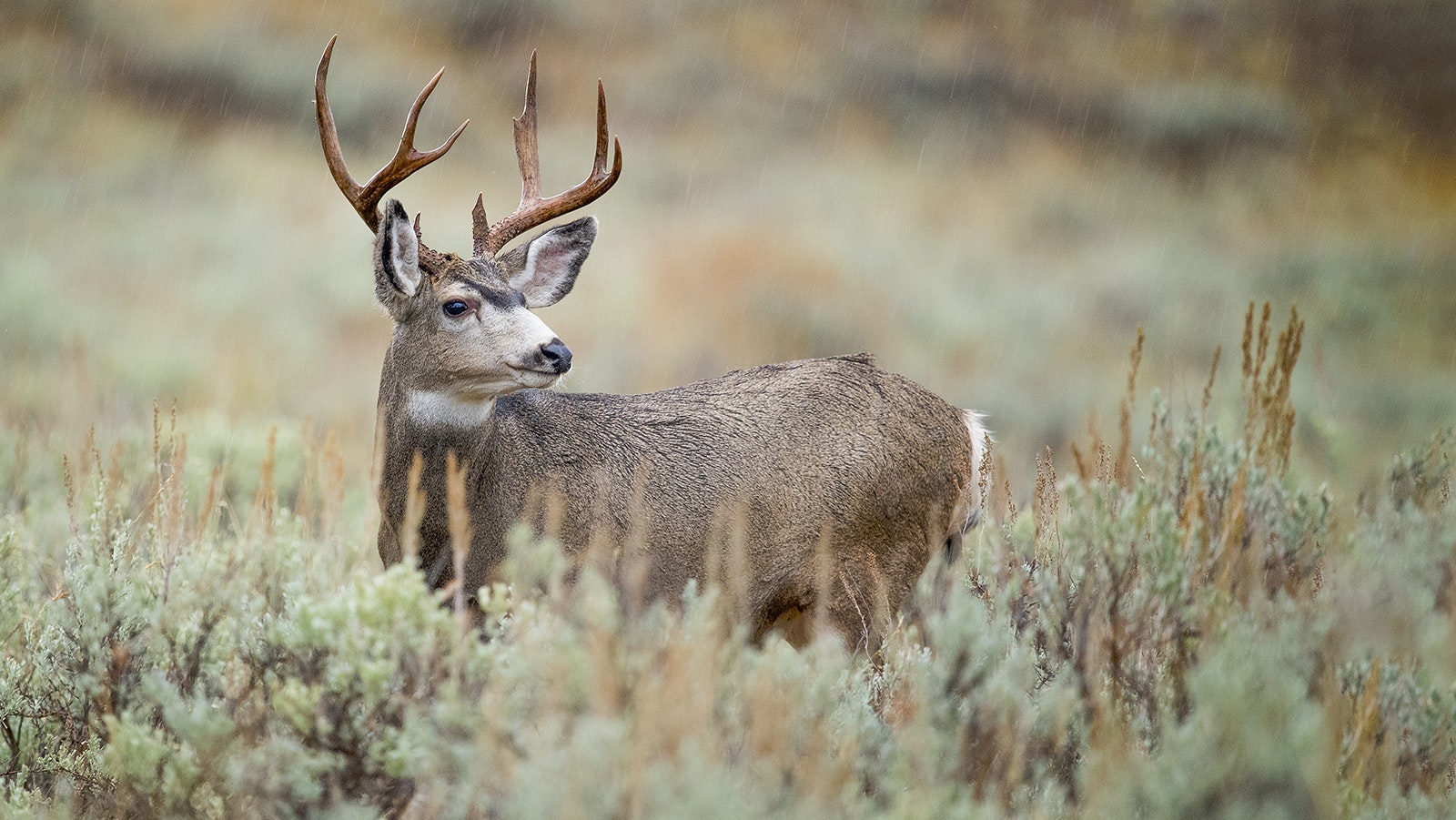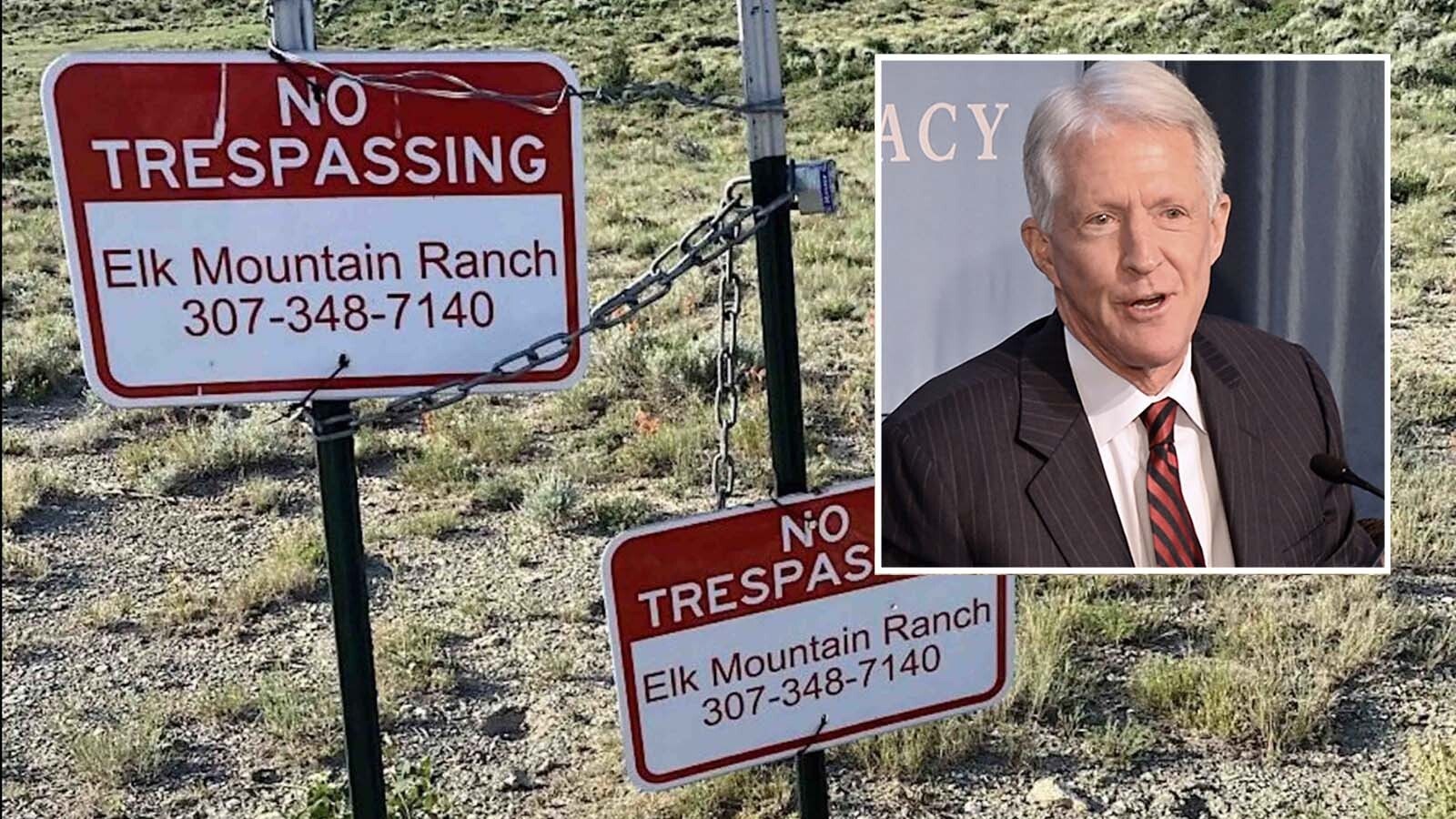An idea started by a Wyoming deer hunter in the wake of some of the state’s prize deer herds being devastated by winterkill has resonated with outdoors enthusiasts across the country and might even start a trend.
Two avid hunters – one from North Carolina and another from West Virginia – reached out to Cowboy State Daily after reading about Wyoming’s “Let a Deer Walk” program. They said it resonated with a common respect hunters share for wild places and wild critters, regardless of where they’re from.
“I’m involved in several conservation organizations. That story has made the rounds in my circle of friends, and everybody’s like, ‘Yeah, that’s the way it’s done,’” Chuck Melman of North Carolina said.
West Virginia resident David Stiltner has hunted deer for 50 years. He had a similar reaction to nearly 1,200 hunters turning in their Wyoming deer tags this year, so that devastated Wyoming deer herds have a better chance at recovery.
“It made my heart feel better, but at the same time, I was sad for all the deer, and all of the hunters who look forward to hunting season all year long. It’s part of our culture and our tradition to hunt,” he said.
Giving Up A Year Of Hunting
“Let a Deer Walk” was initiated this year by Zach Key of La Barge. Like many hunters, he was appalled by the scale of winterkill, particularly in the famed Wyoming Range mule deer herd. Many of the herd’s adult deer starved or froze to death over the winter. And it’s feared that this year’s entire crop of fawns was lost, as brutal blizzards just kept coming well into spring.
So, he came up with a simple concept. Hunters could purchase their deer tags as usual. But, instead of going deer hunting this fall, they could turn them into Key – using the tags essentially as raffle tickets for a prize drawing last month.
Businesses in Wyoming and neighboring states liked the idea, and donated items and services such a taxidermy and an ATV as prizes for 21 lucky winners.
Key recently told Cowboy State Daily that the response exceeded all his expectations. Nearly 1,200 hunters turned in their tags, and roughly $43,000 was raised for wildlife conservation.

Has Seen Similar Devastation
In his decades of hunting, Stiltner said he’s seen similar devastating blows to beloved West Virginia whitetail deer herds, mostly through diseases.
One disease, commonly called “blue tongue” has occasionally hit deer and antelope in Wyoming. During some years in West Virginia it’s come through and hammered the deer population, he said.
The fall of 2012 was particularly bad, he said.
“I hunt on a family farm, and when we were out scouting, we found a number of carcasses and we were thinking, there’s no way all of these deer were illegally shot,” he said. “On opening day, we didn’t see hide nor hair of what we usually see.”
Other hunters were seeing similar scenes throughout the region, he said.
“That led us to have a roundtable discussion and we said, ‘OK, we’re not going to hunt deer this year,’” he said.
‘Kudos To Wyoming Hunters’
Stiltner said he admires a similar response among Wyoming hunters, and likes how “Let a Deer Walk” took it to the next level.
“I’m sure your culture is very similar to ours, especially when it comes to big game animals. Kudos to the Wyoming hunters, and kudos to all of those businesses that supported it. Businesses that rely on hunting dollars. For those businesses to take money out of their coffers – money that they’re not going to get back – that just speaks volumes about them,” he said.
Stiltner has been hunting out West only once, in Colorado. Back in West Virginia he’s used to using a “walk and stalk” technique in thick cover, in hopes of getting quick shots at deer.
“Just the distances, and the vistas and the different methods of hunting out West impressed me,” he said.
And he’d love to come to Wyoming someday.
“Oh my word yes, I’d love to go out there and hunt. I love the beauty of your pronghorn. To me, they’re just majestic creatures,” he said.
‘Icon Of The West’
There aren’t any mule deer in North Carolina, but Melman said he’s been enthralled with muleys from the moment he first saw one in the wild – during a pheasant hunting trip in Idaho about 25 years ago.
“Out pops this muley, and I was like, ‘Holy crap, that’s not a whitetail, and it’s not an elk either,’” he said. “I was so enthralled with it, I just had to go back.”
So he kept coming back out West to hunt and admire mule deer, including some trips to Wyoming.
“One of my favorite areas to hunt is near Buffalo, south of Sheridan in the Bighorn Mountains,” Melman said.
“I love hunting the West, and I love hunting a lot of different animals. But muleys are the icon of the west. And they’re a canary in a coal mine, so to speak, regarding the environment,” he said.
By that he meant, when mule deer aren’t doing well, it doesn’t bode well for the surrounding ecosystem. He became so passionate about conserving mule deer, he joined the Mule Deer Foundation, even though that species doesn’t live anywhere near his home state.

‘Keep The Idea Alive’
He retired from full-time work in 2014, and was soon invited to join the Mule Deer Foundation’s board of directors.
And he admires what “Let a Deer Walk” has done.
“It’s heartwarming. That’s what it’s all about. They (Wyoming hunters) are paying a bunch of money for their tags, and they’re turning it in. Let the deer survive. Let them reproduce and, hopefully, provide that opportunity to future generations. My hat’s off to them,” Melman said.
In fact, he’d like to see “Let a Deer Walk” take hold in other places, wherever deer herds are struggling.
“I hope somebody else picks up on it elsewhere and keeps that idea alive,” he said.
‘I Can’ Thought Process
Key told Cowboy State Daily he’s thrilled that Let a Deer Walk is gaining a national fanbase.
“My main thoughts are, if we are willing to step up for the wildlife, it ensures our kids and their kids get a chance to enjoy them as well. It's only a year or two break to move the needle in the right direction,” he said.
“I've always said, if each person would grab a current problem in today’s world and tackle it, imagine the mountains we could move as a whole. There are 331 million people in the country. We could darn sure solve some problems. It just takes a good attitude and an ‘I can’ thought process. It's easy to sit on the couch and just hope it sorts itself out,” he added.
Mark Heinz can be reached at mark@cowboystatedaily.com.





